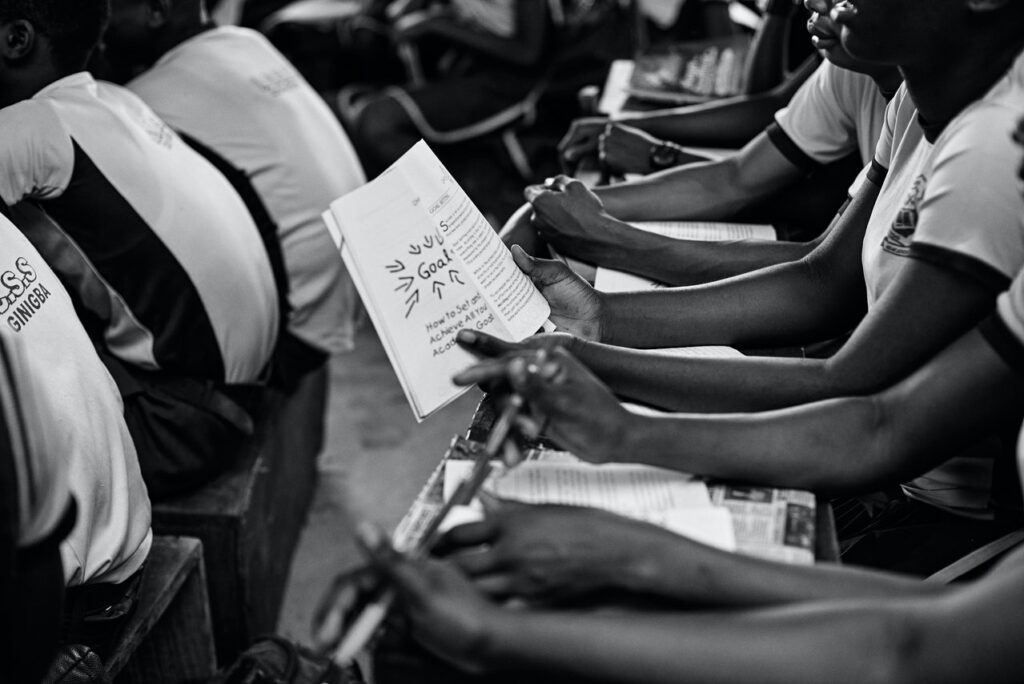Education is often hailed as the panacea for extreme poverty and the lynchpin of innovation. Indeed, extensive research and case studies underscore the importance of education to transform lives and promote prosperity. Yet, particularly in Africa, education alone is not enough and the continent needs jobs. This is particularly true among women who have greater need and hold greater untapped potential than men in transforming the continent. As I have noted in Women in Africa (July 22, 2022), while women represent more than half of Africa’s population, women generated only a third of the GDP in 2018. Per McKinsey, women can boost African economies by the equivalent of 10% of their collective GDP by 2025. To do this, the continent needs both education and jobs for women in Africa. Jobs, in turn, require investment and investment requires an appropriate investment environment.
There are three main reasons why specifically educating women would benefit Africa as a whole:
- Women who are educated tend to be healthier and have fewer children, both of which lead to lower health care costs and less strain on social services.
- Educated women are also more likely to participate in the workforce, earn higher incomes, and pay taxes – all of which contribute to economic growth.
- Research suggests that each additional year of schooling for girls reduces gender inequality and violence against women, while also improving educational outcomes for their children.
Given all these advantages, it is clear that educating women is not only morally right but also makes good economic sense. It is an investment that yields significant dividends not just for individual women and their families but for society as a whole.
“If you educate a boy, you educate an individual; but if you teach a girl, you educate a community.” –African Proverb
Education and Prosperity
Education
A mountain of research demonstrates the role of education in social and economic development and upliftment. Educated individuals see their social development goals furthered, allowing them to spark meaningful relationships within their community. Compatible community members will be more likely to lean on each other for help. They will also access greater opportunities (both financial and communal). Education also drives the value and efficiency in the workplace.
The World Bank reports, “…another year of schooling raises earnings by 10 percent a year. This is typically more than any other investment an individual could make.”
Communities offering inadequate levels of public education face greater difficulty achieving social, economic, and political inclusion.
The Council on Foreign Relations found that in Africa only 8% of girls finish secondary school even though 75% enroll in primary school. The United Nations University (research center) indicates that in Tanzania, half of the school dropouts each year are girls aged 12 to 14 years who drop out because of pregnancies. A UNICEF report indicates that if women had access to secondary education, the child marriage rate would drop by 64%. Per the International Labor Organization, 76% of inactive out-of-school youth were female as of 2018. And nearly 40% of girls in Sub-Saharan Africa were married before they reached the age of 18.
The Economist, in an article titled “Why educating girls is even more important than people realise,” states, “If all women finished secondary school the number of child deaths would fall by half, and 12m fewer children would suffer from stunting caused by malnutrition.”
A study of eight emerging African economies performed by Citigroup and Plan International concluded that GDP would boost an average of 10% within a decade if all girls finished secondary school within those economies.
Prosperity
There are multiple prosperity-related reasons education for women benefits society.
- Educated women have fewer children and can keep them in school.
- Children born of educated mothers face a greater likelihood of receiving a strong education themselves. And, in turn, a better job.
- Such children are also more likely to receive vaccinations and are less likely to die young.
- When women finish secondary school, they can achieve financial and social independence. Per The Economist, “Women who finish secondary school can expect to earn twice as much as those who never enter a classroom.”
Education is Not Enough: Jobs Are Needed for Women in Africa For Prosperity
Jobs and Education
Without sufficient primary and secondary education and skills training, obtaining a job is significantly harder. Most formal jobs require a certain level of education beyond primary school. Individuals not sufficiently educated are ineligible for most formal jobs. As a result, they turn to informal jobs that do not provide a sustainable income.
It is estimated that one in four African children do not attend school. This is a huge problem because education is the key to lifting people out of poverty and improving economic outcomes. There are many reasons why African children don’t go to school. One reason is that families can’t afford the costs associated with schooling, such as uniforms, books, and tuition fees. Another reason is that schools are often located far from where people live, making it difficult for children to get there. In some cases, children have to work instead of going to school in order to help support their families financially. If more African children were able to go to school, it would have a hugely positive impact on the continent as a whole.
Jobs, particularly formal jobs, are catalysts for prosperity. They promote social mobility and social stability. A lack of adequate employment opportunity causes communities to face levels of despair that can breed social unrest.
Challenges
We need to address the issue of gender equality, in order to empower women. Per Andinet Woldemichael in her Closing the gender gap in African labor markets is good economics, “In developing countries, including in Africa, 75 to 90 percent of non-agricultural employment is informal and low-paid work in which women are three times more likely to be employed as contributing family workers than their male counterparts. Meaning women are often unpaid and vulnerable for exploitation.”
The hope for women to become independent and successful entrepreneurs in the long term is limited when women are not protected from exploitation. Woldemichael also highlights that the potential gains from full and equitable female participation in the labor market are substantial. “Had African countries with lower relative female-to-male participation rates in 2018 had the same rates as advanced countries, the continent would have gained an additional 44 million women actively participating in its labor markets.”
Role of Foreign Investment
Foreign investment will play a critical role in expanding global education, creating jobs and delivering prosperity in Africa—particularly for women. The investment case is clear: Africa will be home to almost half of the global population by 2100. Per the World Economic Forum, Africa’s population will account for 83% of global population growth between 2015 and 2100. Europe’s population will decrease by over 50% in that same time frame, by way of comparison.
The diversity and potential of Africa’s upcoming workforce are unmatched. When looking at the World Bank’s Human Capital Index, an international metric that weights the influence of factors like knowledge, skills and health on workforces, developing countries such as Kenya and South Africa rank in the top half of the world for human capital.
Foreign investment has a number of positive implications such as promoting local competition, providing jobs, sparking entrepreneurship, etc. Foreign investment into Africa will not only increase the number of jobs available, especially in the formal sector, but it will broaden the criteria for job availability. More women will have jobs, decreasing the risk of future generations falling into poverty and extreme poverty.
Foreign investment will also increase competition in the continent—a very healthy dynamic for sustainable economic development. It will force local firms to work harder and smarter. It will develop new teaching programs. Foreign investment will also impact those remaining in school, incentivizing them to stay in school and graduate. It will make those graduating from high school or university more eager to utilize their skills and pursue a career they are proud of. It will, hopefully, remind those hesitant of staying in school that there are better jobs awaiting those who do.
Concluding about Education and Jobs for Women in Africa
Education is critical in Africa’s future. However, without the opportunity for a job, education is but an invitation to watch a movie about prosperity from afar with a narrow chance of actually participating in it. Foreign investment holds a critical key to unlocking prosperity by improving education and creating jobs for women in Africa.
August 1, 2022
President, CEO and Co-Founder, 1K Africa
Co-Founder & Chairman, Family Legacy Capital Credit Management, LLC (FLC Credit) & Family Legacy Capital Management, LLC (FLC)
DISCLAIMER: The opinions and views expressed herein are solely those of the author and do not necessarily represent the view(s) of any affiliated institution or organization including without limitation (1K Africa, Family Legacy Capital Credit Management, LLC, Family Legacy Capital Management, LLC, and any investment fund, entity or vehicle managed by or affiliated or associated with any of them.

